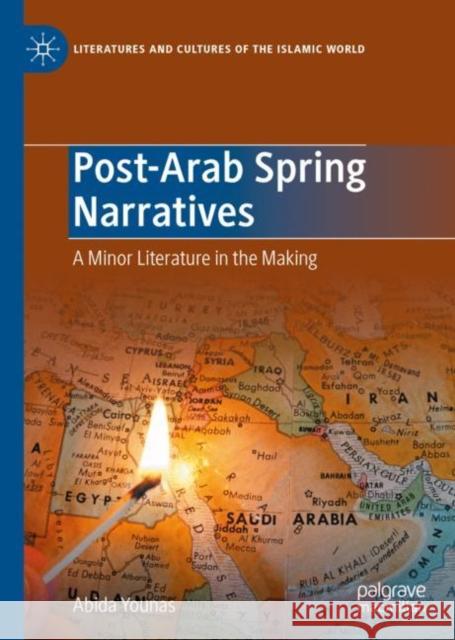Post-Arab Spring Narratives: A Minor Literature in the Making » książka
Post-Arab Spring Narratives: A Minor Literature in the Making
ISBN-13: 9783031279034 / Angielski
Post-Arab Spring Narratives: A Minor Literature in the Making
ISBN-13: 9783031279034 / Angielski
(netto: 460,04 VAT: 5%)
Najniższa cena z 30 dni: 462,63
ok. 16-18 dni roboczych.
Darmowa dostawa!
This book looks at eight post Arab Spring novels in the context of Gilles Deleuze’s and Félix Guattari’s theory of minor literature. Ahdaf Soueif, Hisham Matar, Karim Alrawi, Youssef Rakha, Yasmine El Rashidi, Omar Rober Hamilton, Saleem Haddad, and Nada Awar Jarrar all focus on the Arab world in their work; on the lives of ordinary and minority peoples; and on the revolutions of their respective nations. This volume shows how these contemporary Anglo-Arab novelists exhibit linguistic experimentation akin to Deleuze’s and Guattari’s theory of ‘deterritorialization’, but in a way that is unique to Anglo-Arab writing. The selected novelists repudiate the use of metamorphosis, which is usually an essential part of the deterritorialization of a major language. Instead, their writings enact the minor practice of linguistic deterritorialization by using metaphor and by incorporating contemporary modes of protest like popular slogans, tweets, and chants. These authors challenge the conventions of minor literature and, by adopting this mode of deterritorialization, foreground the experiences of officially silenced voices.
This book looks at eight post Arab Spring novels in the context of Gilles Deleuze’s and Félix Guattari’s theory of minor literature. Ahdaf Soueif, Hisham Matar, Karim Alrawi, Youssef Rakha, Yasmine El Rashidi, Omar Rober Hamilton, Saleem Haddad, and Nada Awar Jarrar all focus on the Arab world in their work; on the lives of ordinary and minority peoples; and on the revolutions of their respective nations. This volume shows how these contemporary Anglo-Arab novelists exhibit linguistic experimentation akin to Deleuze’s and Guattari’s theory of ‘deterritorialization’, but in a way that is unique to Anglo-Arab writing. The selected novelists repudiate the use of metamorphosis, which is usually an essential part of the deterritorialization of a major language. Instead, their writings enact the minor practice of linguistic deterritorialization by using metaphor and by incorporating contemporary modes of protest like popular slogans, tweets, and chants. These authors challenge the conventions of minor literature and, by adopting this mode of deterritorialization, foreground the experiences of officially silenced voices.











